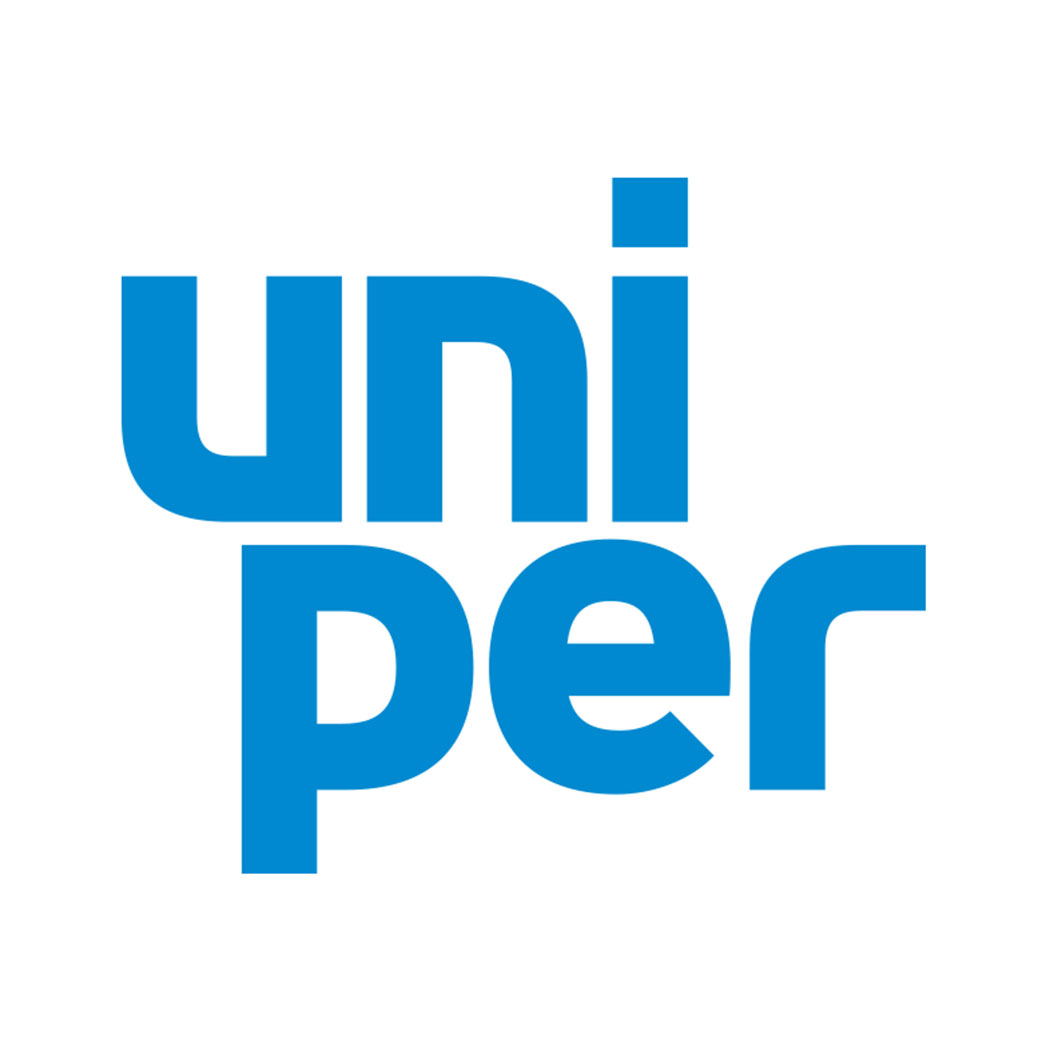As society seeks to become less dependent on fossil fuels and more dependent on renewables, the energy industry is undergoing radical changes. To be at the forefront of this energy revolution, Uniper is modernising IT to help the company become a leading digital innovator while serving customers better.
One of Europe’s largest electricity providers, Uniper is a Düsseldorf, Germany-based company that was spun off from global energy leader E.ON in 2016. With Europe transitioning to a low-carbon future, Uniper was looking to transform its traditional on-premises IT infrastructure and systems to a more flexible modern environment that would support its corporate strategy to “Empower Energy Evolution.”
Enabling change
For many companies, transformation poses a fresh set of difficult challenges. Damian Bunyan, chief information officer (CIO) of Uniper, says, “As we change from the old world that we used to be in with certain old-world assets and we move into a new world, that requires by its nature a more robust approach to technology.”
Among the many challenges facing Uniper were transforming existing systems to meet business and market changes, and better align IT with the business. The company was also looking to streamline and stabilise IT service management to increase organisational synergies and manage multiple suppliers.
To help Uniper fulfill its vision, DXC Technology is providing the company with a wide array of support and services across the DXC Enterprise Technology Stack, including workplace services, cloud and security services, application management and robotic process automation.
Building a strong IT foundation and stronger IT operations
DXC began by simplifying and optimising the existing IT estate, using automation and continuous optimisation to deliver savings to fund transformation initiatives. DXC migrated Uniper’s existing applications and SAP environment from 2 E.ON data centers to the Azure cloud, allowing the company to unlock business value in those applications.
A major initial effort focused on transforming the Uniper workplace environment for 10,000 employees. A key goal was to give employees the ability to quickly switch to remote working anytime, anywhere, when needed.
Key improvements included a new fully cloud-managed workplace based on modern user devices, Microsoft 365 and Teams. This was fully integrated with Uniper’s IT Service Management platform based on ServiceNow. DXC’s Service Integration and Management (SIAM) solution was implemented with a dedicated global service desk and a DXC-designed SIAM module for ServiceNow, which automated event and incident management.
Security was also a key factor. DXC provided a modern endpoint security and protection model, and an update of Uniper’s identity management solution, supported by DXC’s managed security services. These solutions include an open architecture to support future digital identity and security needs. DXC also supported the deployment of a cloud-based workplace solution, including device services that were designed to operate under a rapid DevOps delivery model.
Employees benefitted from seamless access to all critical business applications, with no sacrifice to security or performance. And under government-mandated stay-at-home orders in 2020, Uniper employees shifted to remote working in just 1 day, using DXC’s workplace solution. Throughout the health crisis, the company has maintained business continuity without interruption, while at the same time enabling employees to become more effective at collaborating and improving productivity.
“When I look at a number of our competitors, we are able to do things as an organisation that those companies can’t do from home,” Bunyan says. “That protects my people, and it protects society.”
Automation is the cornerstone of Uniper’s efforts to modernise its workplace services. Uniper and DXC have collaborated on a number of automation initiatives, including the recently deployed Actionable Moment Engine.
"By automating repetitive tasks and detecting and resolving issues without the need to manually raise a ticket, our users and our support agents have more time to focus on the more important things," says Craig Brereton, head of end user IT services at Uniper.
The engine’s first automation task is focused on a security compliance issue. Company data on devices is protected by Microsoft BitLocker encryption feature, but this is not working for a small number of devices and needs to be re-enabled. Usually, this would require a support agent detecting the issue, contacting the user, scheduling an appointment, and fixing the encryption on the device, while recording all of this in an incident ticket. All these steps are now fully automated. Actionable Moment Engine detects the issue, contacts the user through a Teams chatbot, and executes the resolution, including the documentation in a ServiceNow ticket – ensuring no device is left with an untreated disabled.
The solution automatically resolved 190 incidents in the first month, equal to the manual effort of one agent. "This is only the first use case where we apply automation to avoid disruptions in user productivity and reduce manual effort for the support teams," adds Brereton. The modular solution can be adapted easily for other device compliance issues and improved user experience.
“If I look at the current time period in 2020, I have 50% fewer severity 1, 2, 3 and 4 incidents than I did a year ago.”
Damian Bunyan Chief Information Officer, Uniper
Focus on innovation
In addition, DXC helped Uniper implement its Digital Lab, a focal point for the company’s innovation and a hub to develop ideas and work on creative solutions. To kick off the program, Uniper visited the DXC Innovation Center in Newcastle, United Kingdom, and participated in Envision workshops to shape plans for Uniper’s Digital Lab. DXC used design thinking and agile principles to help build the lab, which serves as a platform for co-creation and co-development with partners and suppliers such as DXC.
The Uniper Digital Lab has introduced many innovations, including a prototype of a mobile app that simplifies the process for last-minute risk assessments at Uniper’s power stations and facilities, which are located in different geographies throughout Europe and across the world. The solution is reducing paperwork and manual effort, thereby reducing the risk of accidents or injuries.
Another goal was to move business-critical applications to the public cloud. DXC played an integral role in supporting migrations of key environments and operations, including mission-critical SAP systems, in the Microsoft Azure Cloud. DXC also supported application rationalisation. In identifying what needed to be migrated, the company found that about one-third of the applications were not needed, so they were removed, creating a smaller, simpler footprint.
Value delivered
At the same time, DXC is helping Uniper introduce robotic process automation (RPA) to increase efficiency by reducing manual transactions needed for a variety of processes, including customer billing and reconciliation. Partnering with Uniper’s Robotic Center of Excellence team, DXC’s RPA team is helping to design, develop, test and deploy complex automations and stabilise RPA systems that were transitioned to Uniper.
It is not just technology that’s helping Uniper to transform. Culture plays a key role too. Underpinning all of the services the “new DXC” is providing is a digital delivery model based on Agile, LEAN and DevOps principles. This new way of working is another significant factor in enabling more flexible, automated and value-driven IT operations for Uniper. Bunyan says the IT modernisation program is providing many benefits.
“It’s the modernisation and getting to that level of automation that gives us maximum reliability, maximum speed, maximum compliance, and of course, maximum security to protect our critical infrastructure,” he says. Bunyan adds that since Uniper’s IT infrastructure is now cloud-based and run by automated robots, it is working much more efficiently.
A successful journey
Uniper is leveraging these advantages to implement innovative solutions, ensure business continuity in critical times, and optimise operations and costs. The company has also improved user satisfaction — both internally for employees and for its energy consumers, who have access to improved digital services. At the same time, new automated processes have reduced human errors, while lowering adverse incidents at its plants through better predictability.
“It’s the modernisation and getting to that level of automation that gives us maximum reliability, maximum speed, maximum compliance, and of course, maximum security to protect our critical infrastructure."
Damian Bunyan Chief Information Officer, Uniper
This transformation is helping increase Uniper’s leadership in the energy industry. Uniper now has the flexibility at its plants to ensure customers a sufficient and reliable power supply. By simplifying operations, the company can offer tailor-made solutions and free its customers from having to worry about the complex issues they face.
“Lots of CIOs are coming and looking to see what we’ve done,” Bunyan says. “We’ve built a bit of a reputation and people are coming and talking to us, which is very flattering.” Uniper’s strategy “Empower the Energy Evolution” is not an easy task. Uniper’s CIO says it takes working with a technology firm you can trust.
“This technology journey from the old world to the new world — I’ve never done it before,” Bunyan says. “I am designing everything from scratch. And at that point, having friends and partners like DXC Technology who’ve already been there, seen it and done it, is invaluable.”

